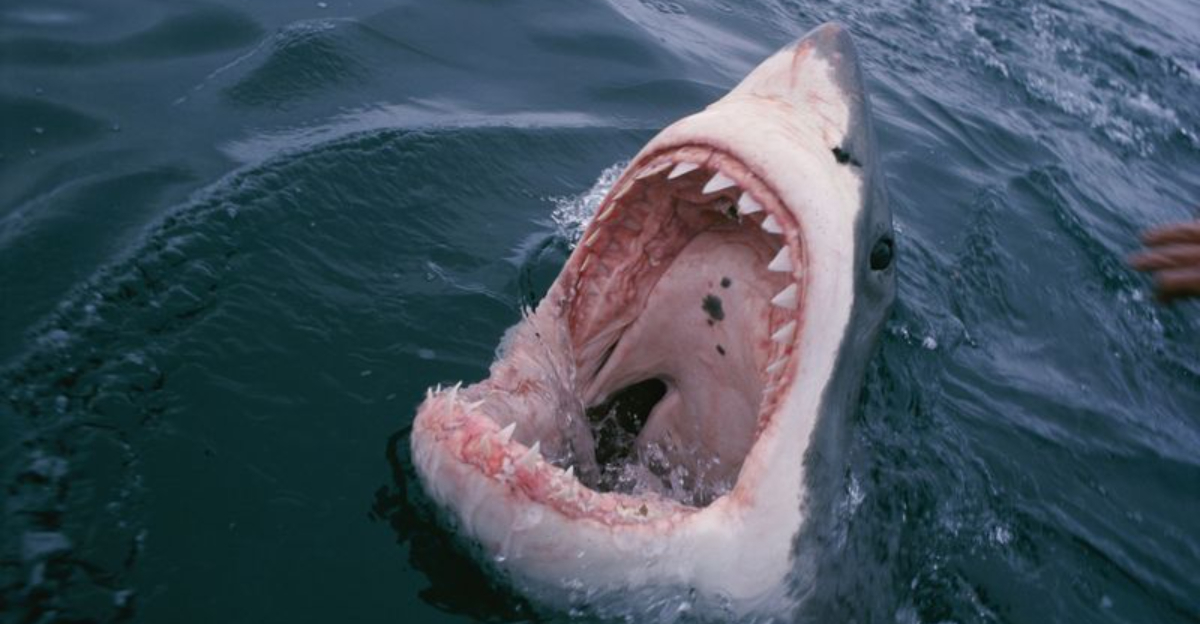
Florida’s diverse marine life is a key attraction for tourists worldwide. However, the state’s officials face a growing concern: the allure of shark feeding.
Despite laws prohibiting the practice, it remains a pervasive issue, threatening both ecological balance and safety.
Florida’s Battle to Protect Its Marine Life
Florida’s commitment to preserving its marine ecosystems is a testament to its rich biodiversity. The state is home to a wide array of marine species, making it imperative to safeguard these natural treasures. Officials have implemented various regulations to maintain the delicate balance of these ecosystems.
Shark feeding, a seemingly harmless tourist activity, disrupts the natural behavior of these apex predators. By feeding sharks, humans inadvertently alter their hunting patterns and interactions, creating long-term ecological impacts.
The state’s wildlife agencies work tirelessly to enforce laws and educate the public about the importance of maintaining marine sanctuaries. Through continuous monitoring and research, Florida strives to protect its waters and ensure that future generations can enjoy their pristine beauty.
How Shark Feeding Became a Tourist Attraction
The allure of shark feeding as a tourist attraction is intertwined with the thrill of encountering these majestic creatures up close. In the past, tour operators capitalized on this by offering experiences that promised excitement and adventure.
As tourists flocked to Florida, the demand for such exhilarating encounters grew. This spurred an increase in tours that encouraged feeding, often marketed as an unforgettable marine adventure.
While these experiences were initially seen as harmless fun, their popularity has waned due to rising awareness of their ecological impact. Today, the challenge lies in shifting public perception and promoting responsible tourism that respects marine life.
What the Law Actually Forbids
Florida’s regulations on shark feeding are clear and stringent. The law explicitly prohibits the feeding of sharks in state waters, a measure aimed at preserving the natural behavior of these creatures.
Violating this law not only endangers marine life but also poses significant safety risks to humans. Sharks, conditioned by feeding, may associate humans with food, increasing the likelihood of encounters.
Authorities have emphasized that these regulations are in place for both ecological and public safety reasons. They continue to work on raising awareness about the importance of adhering to these laws, ensuring that visitors understand their role in preserving marine habitats.
Why Some Tourists Ignore the Rules
Many tourists remain unaware of the implications of feeding sharks, often viewing it as a harmless interaction. The thrill of the experience can overshadow the reality of its impact, leading some to bypass regulations.
Peer influence and social media also play roles in perpetuating this trend. Travelers may feel compelled to capture and share these moments, sometimes prioritizing personal gratification over environmental responsibility.
Moreover, misinformation and lack of visible enforcement can contribute to rule-breaking. Addressing these challenges requires a concerted effort to educate tourists and promote a culture of conservation.
The Environmental Cost of Feeding Sharks
Feeding sharks alters not only their behavior but also the broader marine ecosystem. These changes can have cascading effects, disrupting the balance that sustains the ocean’s biodiversity.
Sharks conditioned to human interaction may lose their natural hunting instincts, affecting prey populations and the overall food chain. This can lead to imbalances, impacting coral reefs and other marine habitats.
The long-term ecological costs of such disruptions highlight the need for strict regulations and public awareness. Sustainable tourism practices and adherence to wildlife protection laws are crucial to maintaining healthy oceans.
How Florida Officials Are Fighting Back
Florida’s officials are at the forefront of combating illegal shark feeding through strict enforcement and public education. They conduct regular patrols and collaborate with local communities to monitor tourist activities.
Educational campaigns aim to inform visitors about the importance of protecting marine life. By promoting awareness, authorities hope to reduce instances of illegal feeding and foster responsible tourism.
Partnerships with conservation groups and educational institutions further bolster these efforts. Together, they develop programs that highlight the significance of marine ecosystems and the role individuals play in their preservation.
How Travelers Can Experience Marine Life Responsibly
For travelers eager to enjoy Florida’s marine life, responsible tourism offers enriching and sustainable experiences. Eco-tours provide opportunities to witness marine beauty without disturbing natural habitats.
Guided tours led by knowledgeable experts educate participants about the ecology of the region. These experiences emphasize respect for wildlife, allowing travelers to appreciate the ocean’s wonders responsibly.
Choosing eco-friendly options and supporting businesses that prioritize conservation can make a significant difference. By participating in sustainable tourism, visitors contribute positively to the protection of Florida’s precious marine environments.
Dear Reader: This page may contain affiliate links which may earn a commission if you click through and make a purchase. Our independent journalism is not influenced by any advertiser or commercial initiative unless it is clearly marked as sponsored content. As travel products change, please be sure to reconfirm all details and stay up to date with current events to ensure a safe and successful trip.